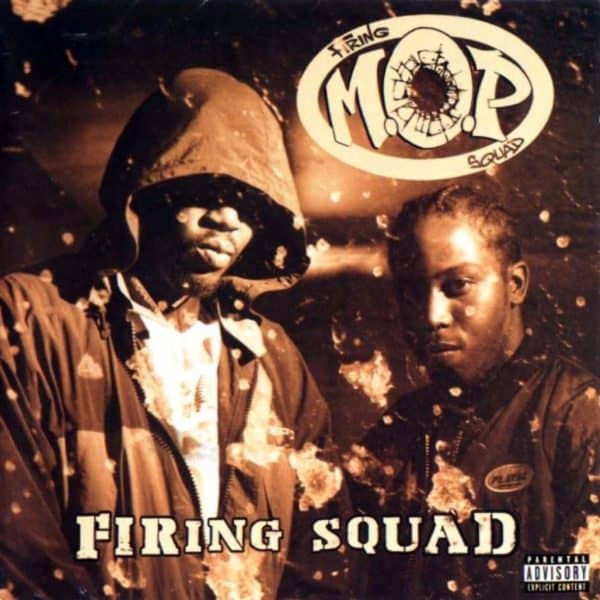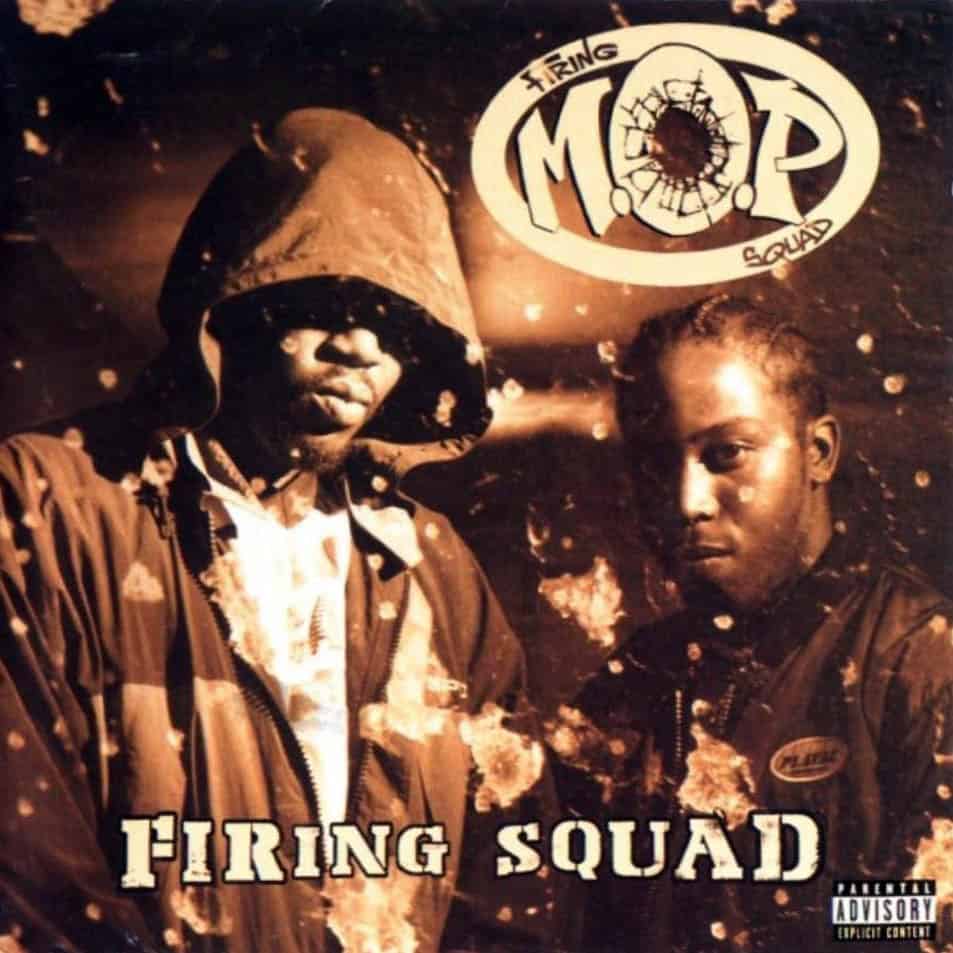
On this day in 1996, Brooklyn’s own Mash Out Posse—better known as M.O.P.—unleashed their explosive second studio album Firing Squad, a record that solidified their place among the most rugged and authentic voices in East Coast hip hop. Released under Relativity Records and produced by a powerhouse lineup including DJ Premier, Big Jaz, Ali Dee, and M.O.P.’s own Lil’ Fame, Firing Squad was a sonic battering ram that perfectly captured the grit and street ethos of mid-90s New York.
Coming off their 1994 debut To the Death, Billy Danze and Lil’ Fame had already made their mark with an unapologetically hardcore sound. But Firing Squad took things to another level. The duo’s raw lyricism, fiery delivery, and unfiltered street narratives collided with Premier’s boom-bap precision to create one of the hardest rap albums of its era. From the opening title track “Firing Squad” to anthems like “World Famous” and “Downtown Swinga,” the album was pure adrenaline—built for heads who craved authenticity over flash.
“Stick to Ya Gunz,” featuring Kool G Rap, became one of the project’s standout moments. The track’s militant energy and lyrical firepower embodied everything M.O.P. stood for: loyalty, survival, and unrelenting aggression. Elsewhere, cuts like “New Jack City” and “Salute Pt. 2” showed the group’s versatility while staying rooted in the raw energy of Brownsville, Brooklyn.
While it didn’t receive the same mainstream shine as other East Coast releases of the time, Firing Squad became a cult classic among hip hop purists. Its no-frills production and unapologetic attitude helped define the underground sound that would later influence generations of hardcore emcees. DJ Premier’s involvement added another layer of prestige, bridging M.O.P.’s street edge with the sonic craftsmanship of Gang Starr’s legendary producer.
Twenty-eight years later, Firing Squad remains one of the most respected and authentic projects from hip hop’s golden era. It’s an album that captured the spirit of survival and defiance in Brooklyn’s toughest blocks while proving that M.O.P. didn’t just make music—they made war cries for the streets.

